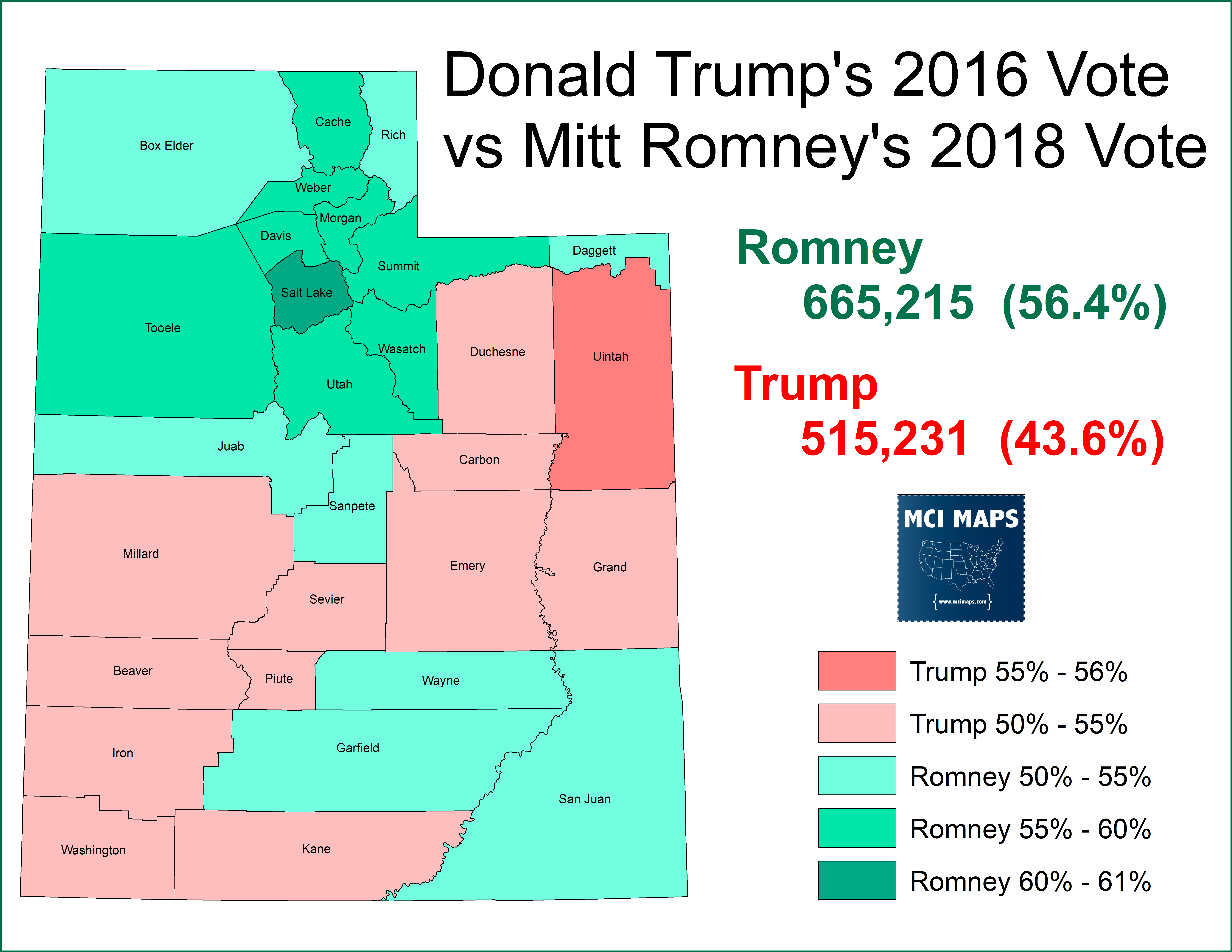On February 5th, 2020, Utah Senator Mitt Romney made history by becoming the first Senator to vote to convict a President that belonged to his own party. Romney’s vote to convict Donald Trump for Abuse of Power was announced just hours before the final roll call. Romney and all 47 Democrats voted to convict, while 52 Republicans voted to acquit.
The Senate trial votes stood out from the previous two impeachments of Presidents. Democrats Andrew Johnson and Bill Clinton, the two former Presidents to be impeached, both saw their entire party caucus stand by them in the Senate. In addition, both got the votes to acquit from Republicans as well. Trump, meanwhile, lost one member of his own party, and got no votes from conservative Democrats. Shortly after Romney’s announcement, West Virginia Democrat Joe Manchin, the most likely democrat to acquit, announced he would vote guilty.
Speculation immediately arose. What effect would this have on Romney’s political career? Was he not planning to run for re-election? I think its important, in light of these questions, to look at politics in Utah.
Mormon Politics in Utah
Utah is unique because of its standing as a very conservative and Mormon state. It is often one of the most Republican states in the nation, but that allegiance is based heavily on its large Mormon population.
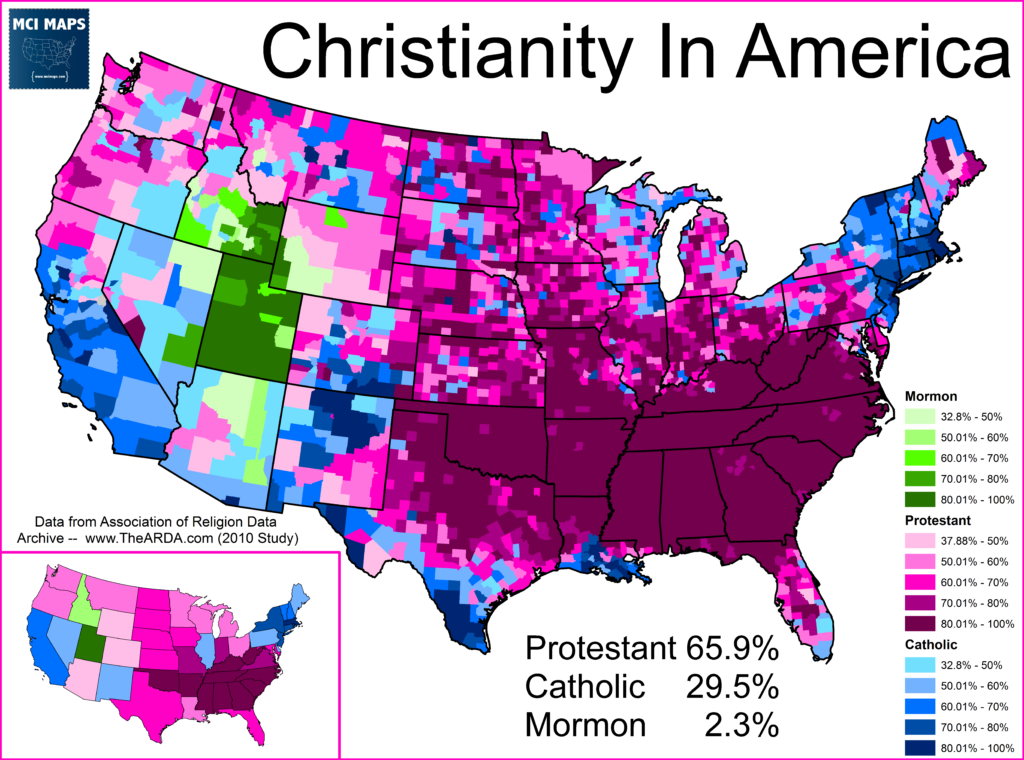
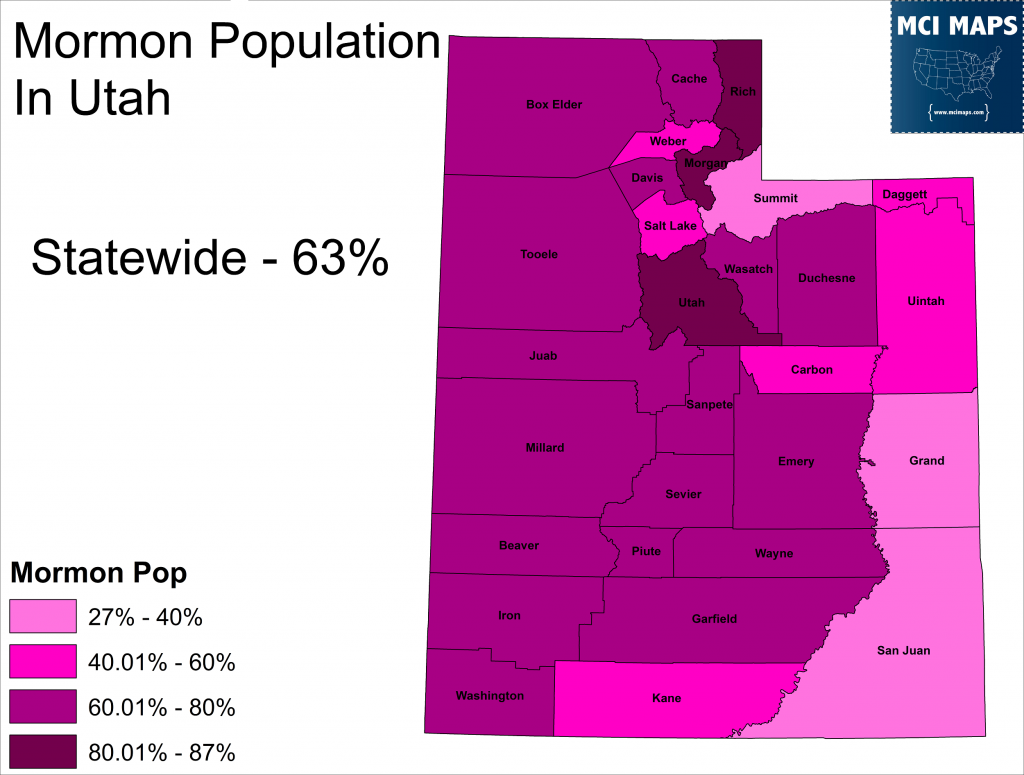
Utah’s large Mormon population has resulted in Trump having weak support in the state. There are several primary reasons for this.
- Trumps abrasive nature goes against “Mormon nice”
- Trump’s marriages and affairs contrast with Mormon focus on family and celestial marriage
- Mormon experiences with bigotry make them untrustworthy of candidates who demonize other groups
- Mormon missionary work makes them more sympathetic to immigrants
During the primaries, there was no love for Donald Trump. Ted Cruz dominated the caucuses and Trump fell into third place.
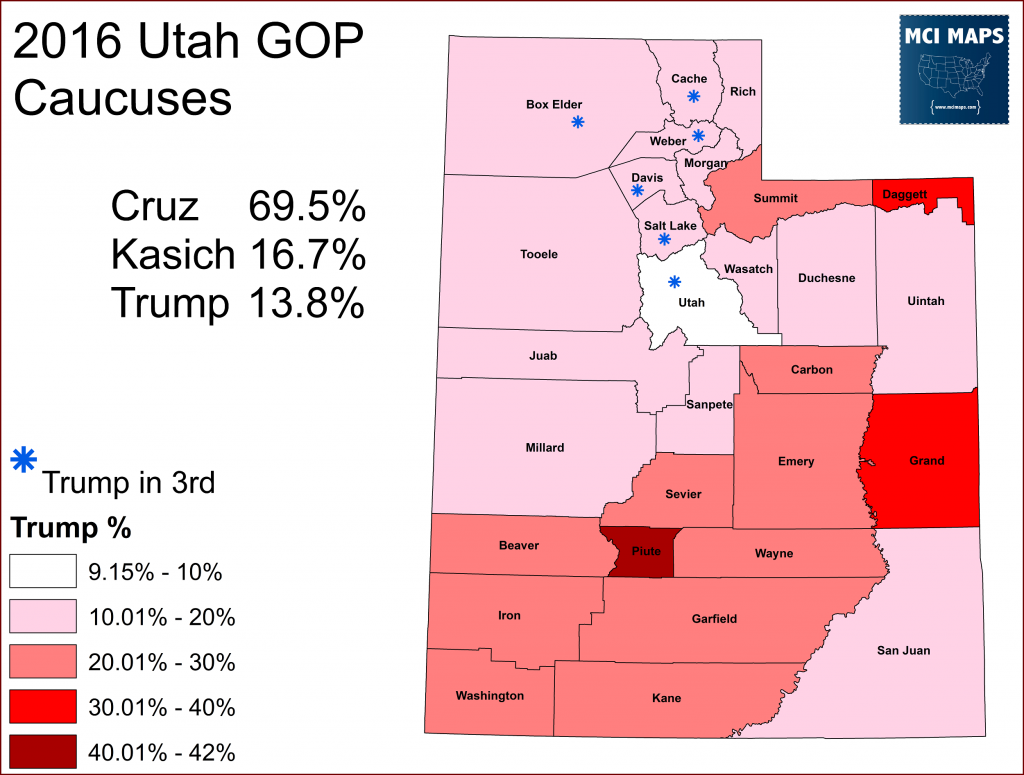
Trump’s Mormon problem wasn’t just limited to Utah Mormons. He lost Mormon’s in the Idaho primary as well.
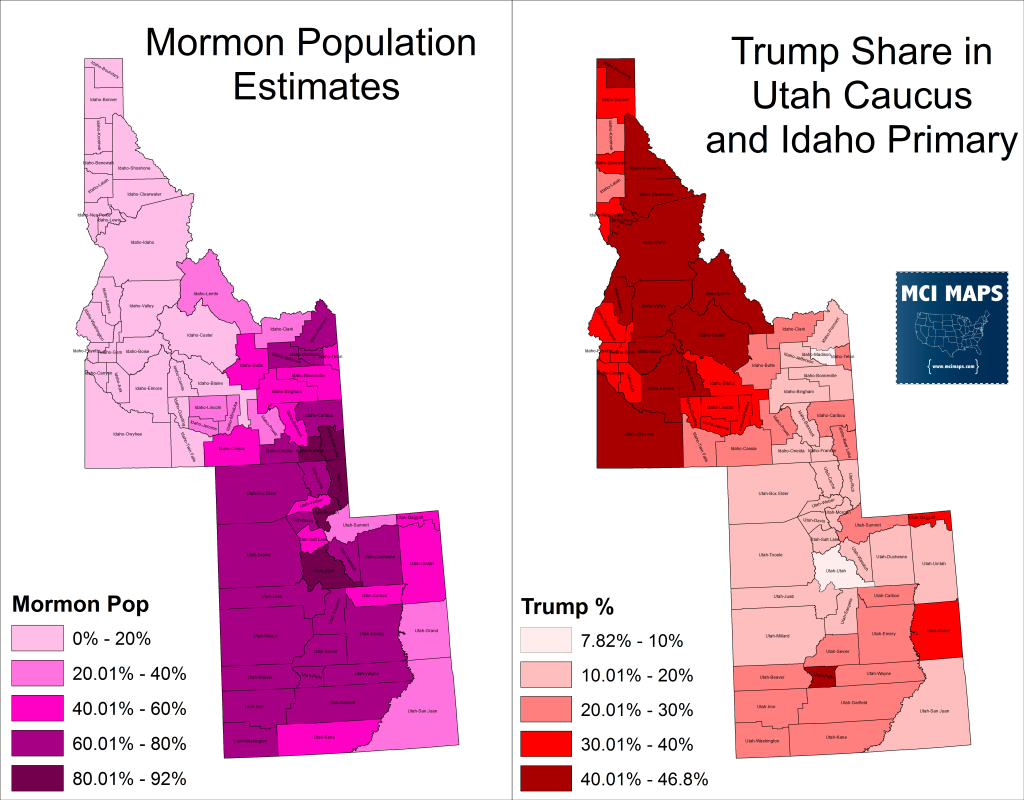
Once Trump became the nominee, it was assumed Utah would go to him, but an unexpected complication arose in the fall general election; an independent candidate entered the race.
The 2016 Election in Utah
Evan McMullin announced is presidential candidacy months before anyone really took notice. McMullin was a former CIA operations manager and House GOP staffer. His ideology is similar to George W Bush and he represents a more standard establishment conservative. McMullin ran to give establishment conservatives and alternative option. McMullin himself is Mormon and went to Brigham Young University. It seemed that if McMullin was going to have any real impact, it would be in Utah and Eastern Idaho.
Still for some time, McMullin’s candidacy wasn’t factored in. He wasn’t included in polls for Utah, despite polls showing a large undecided vote. When McMullin finally started getting included in polls around September, he was polling in the 20%. Controversy with Trump over the Access Hollywood tape and his poor debate performance further boosted McMullin, who began to make Utah is main focus. An Emerson poll in mid-October even had McMullin leading in Utah with 31%. In the pollster averages, McMullin still hovered in 3rd, neck and neck with Clinton for 2nd.
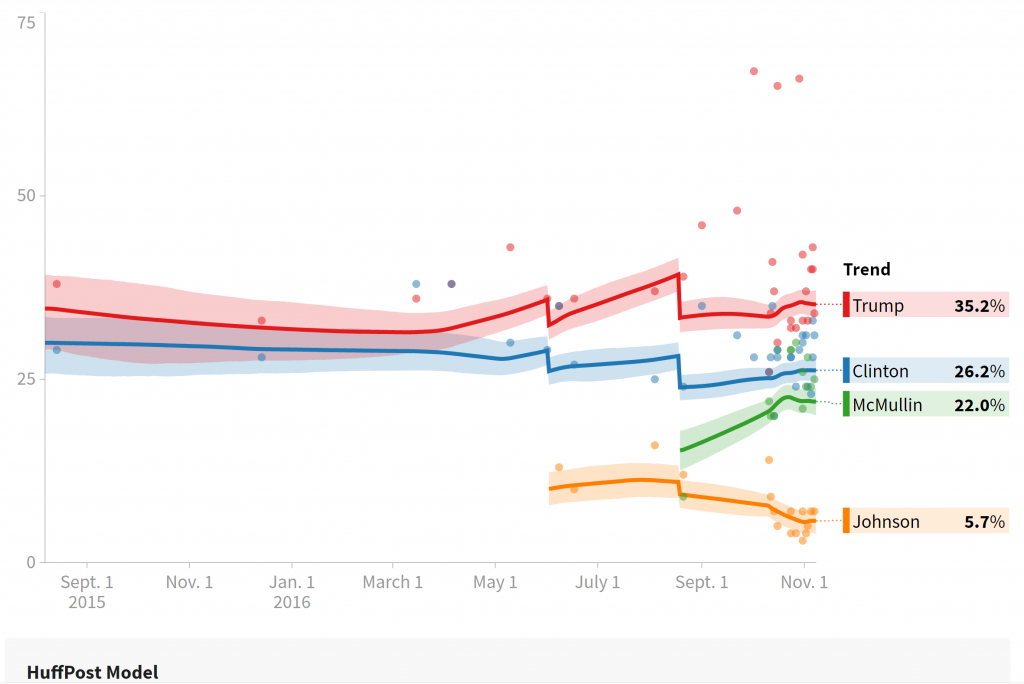
During the general campaign, Trump maintained high disapprovals. Both he and Clinton were deep underwater with both Mormons and overall Utah voters.
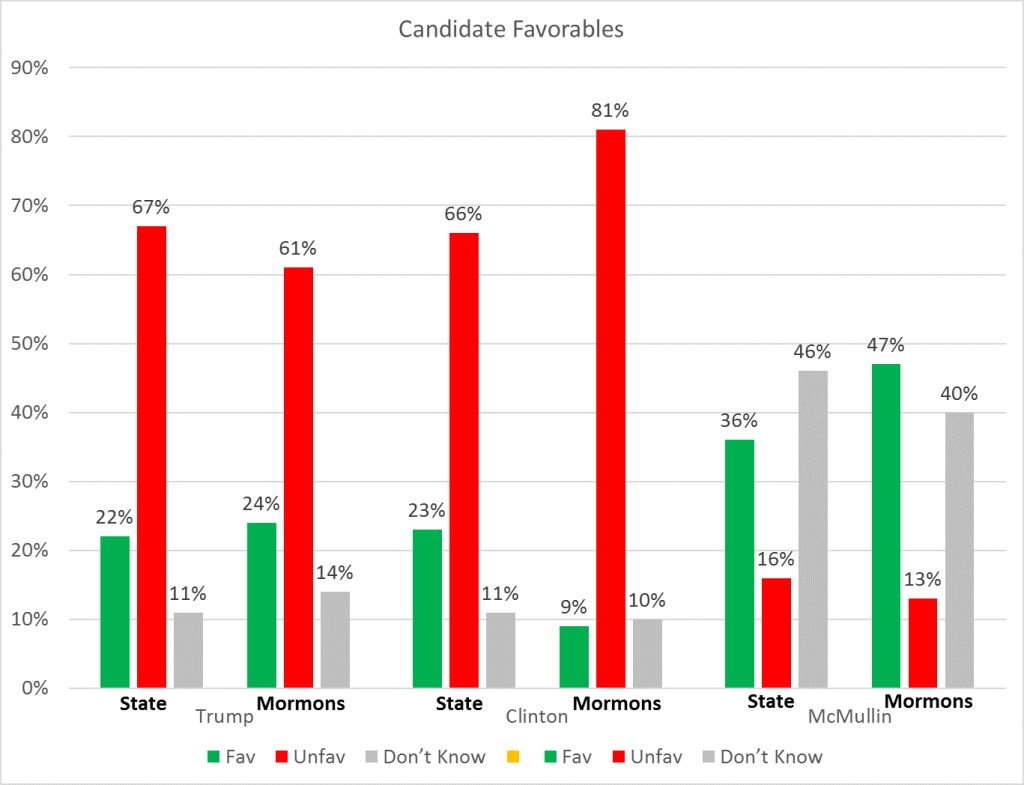
In the end, McMullin got just over 20%, the highest of any third party candidate in any state since Ross Perot in the 1990s.
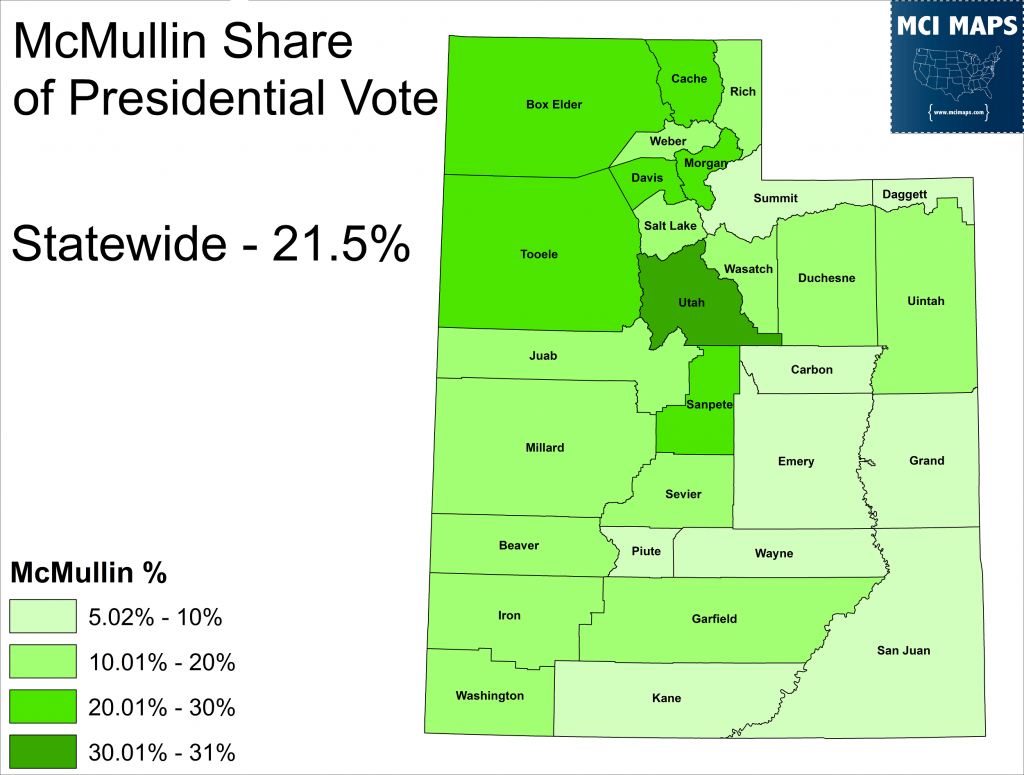
McMullin’s candidacy kept Trump under 50% in a state where Republicans typically hover over around 70%. McMullin even took a state house seat around Brigham Young University.
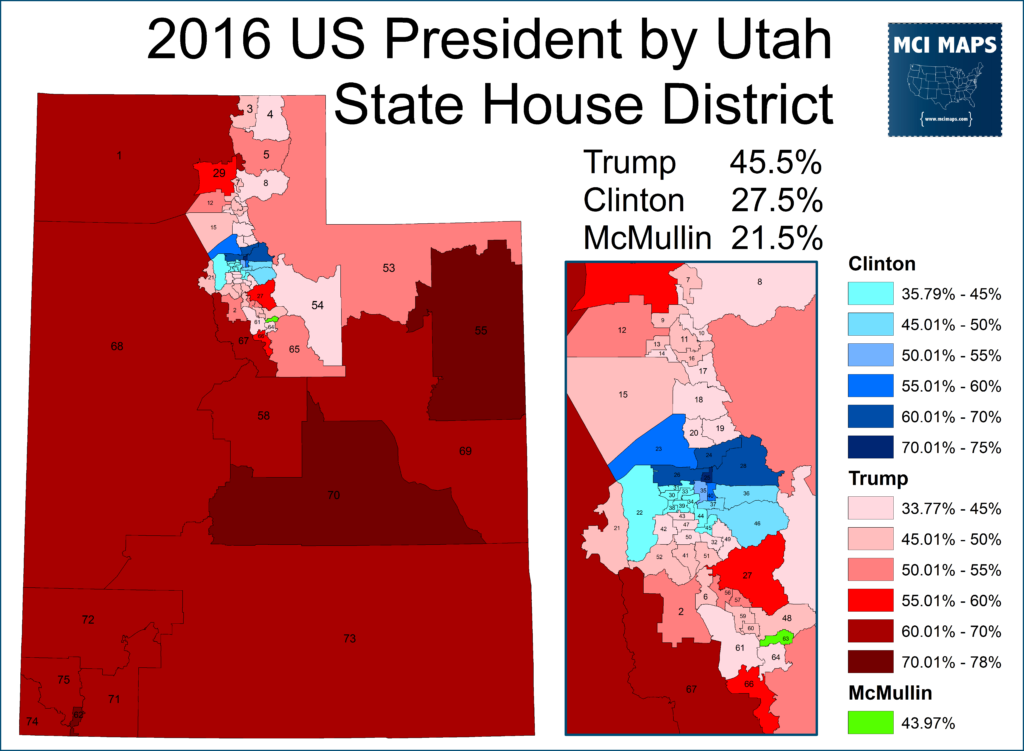
McMullin’s strongest county was Utah County, a heavily Mormon suburban county that includes BYU. The University backed McMullin. The same day Trump was getting 51% in Utah County, Senator Lee and Governor Herbert were clearing 80%.
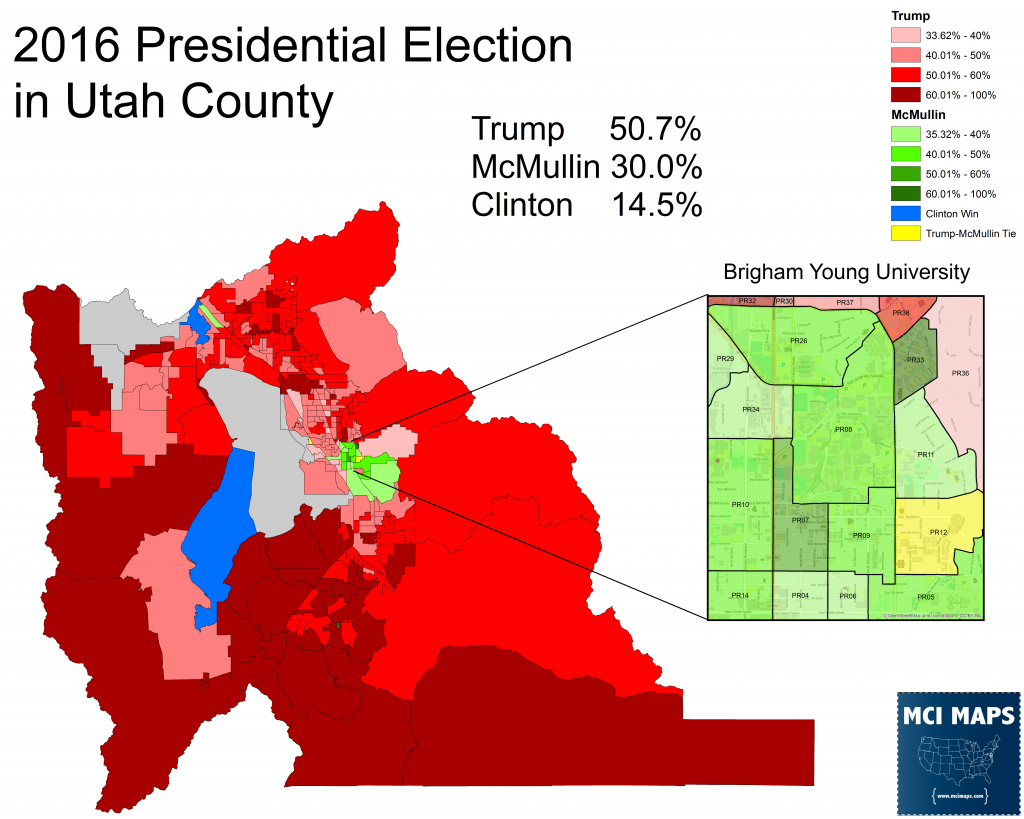
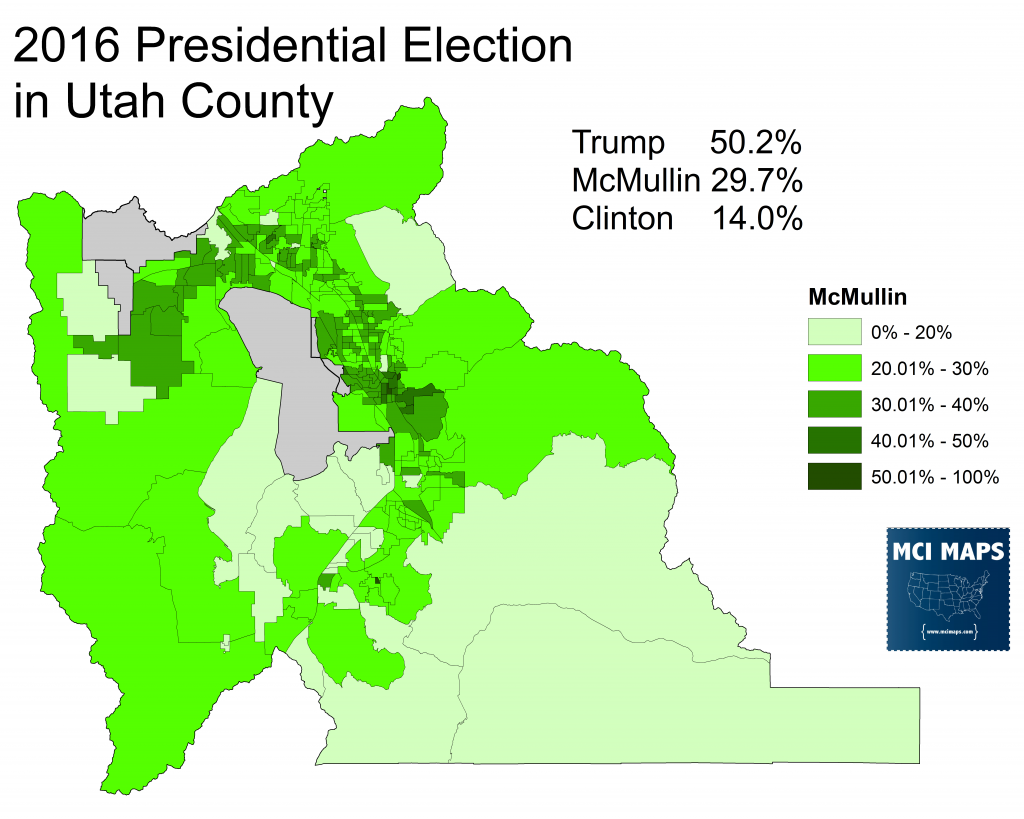
McMullin’s candidacy resulted in a sharp drop in the GOP share of the Presidential vote. For the most part in Utah, Democratic share has been fairly static. Variations in GOP share often come down to independent candidates.
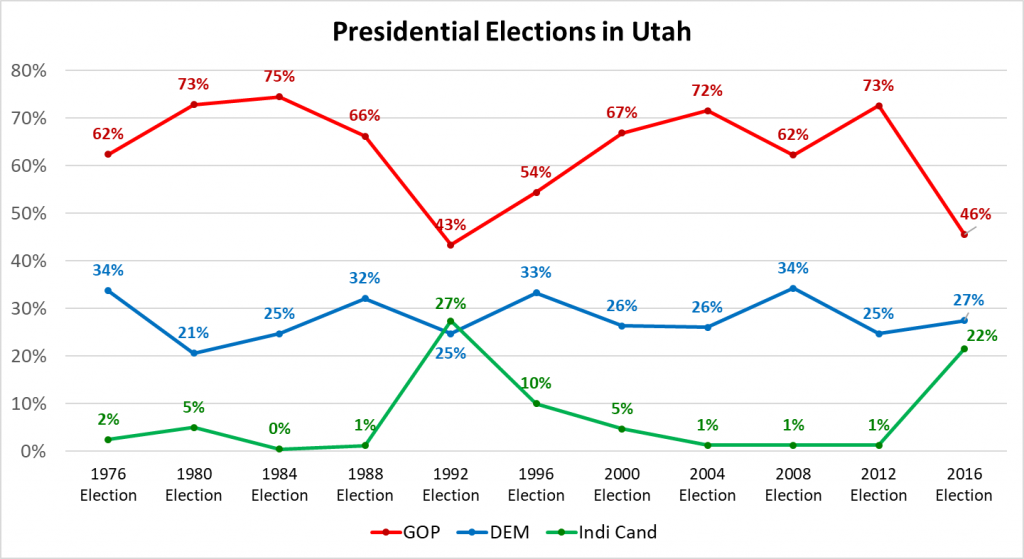
Trump’s performance compared to the Senate candidates in both Idaho and Utah revealed he under-performed. His drop was, of course, much more dramatic in Utah.
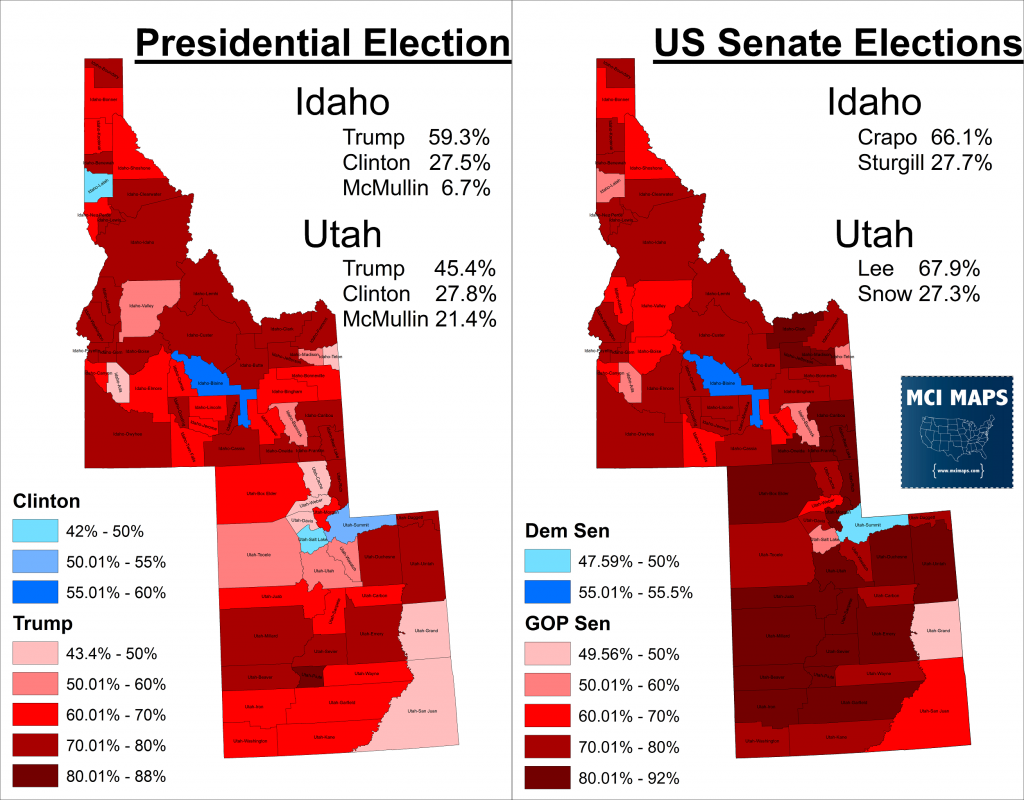
Trump’s under-performed most in North Utah and eastern Idaho, areas with the largest Mormon populations.
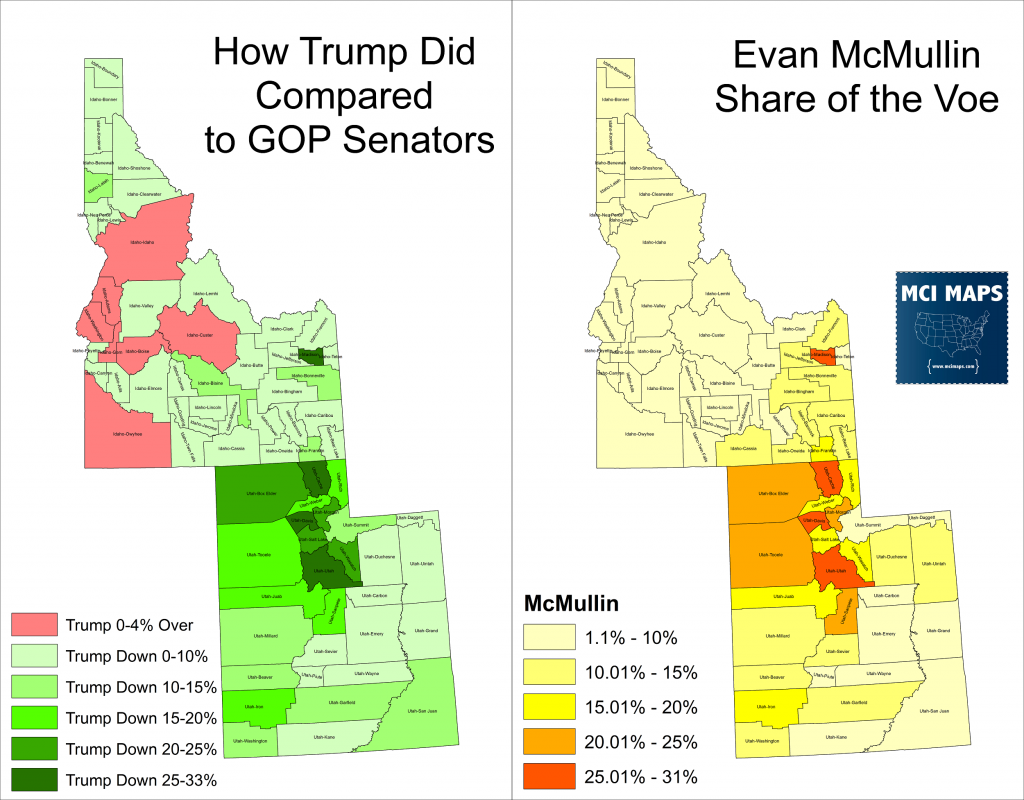
These drops were largely a result of McMullin’s presence, not Democrats doing better.
Romney’s 2018 Senate Race
When Senator Orin Hatch announced he would not run for re-election in 2018, the front-runner to replace him quickly became Mitt Romney; the former Massachusetts governor and 2012 Republican nominee for President. Romney had moved permanently to Utah a few years before and was already well-regarded in the state for his work on the 2002 Winter Olympics. Romney had also notably not endorsed Trump during the 2016 election.
The prospect of a Republican who bucked Trump winning a primary would be tough in most red states, but not in Utah. Just in 2017, an anti-Trump Republican won the special election for Utah’s 3rd district.
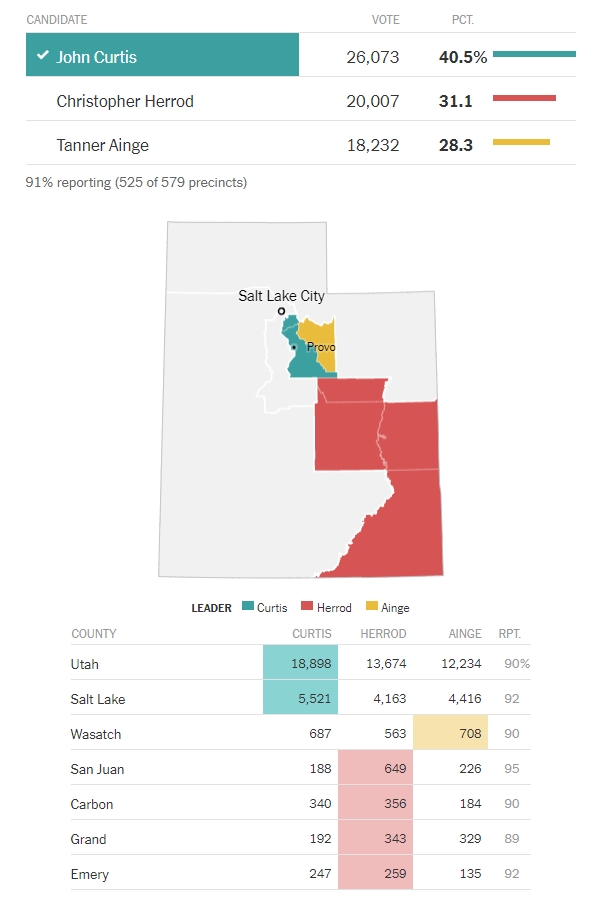
John Curtis, the mayor of Provo, Utah, never backed Trump in the election, was attacked for not paying fielty to Trump, but still won on the back of strong support in Utah County.
Romney’s biggest threat was Mike Kennedy, a state representative. Romney first had to get through the convention process and then onto a primary. Utah law used to allow someone to get 60% at a convention to avoid a primary. That law was changed, however, to allow candidates to gather signatures for a primary no matter what. Conservative activists hated this change, as they often control conventions, while the more moderate members pushed it. Romney gathered signatures to ensure a primary, but also worked to have a good showing at the convention. He did decently, but still lost Kennedy 51-49.
The loss didn’t mean much though, as the convention has long been out-of-step with the primary voters. Both Utah 3rd Congressman John Curtis and Governor Gary Herbert did poorly at conventions and easily won primaries.

This election proved to be more of the same. Romney easily won the primary with 72% of the vote. The lone county he lost was also Trump’s best in the 2016 caucuses.
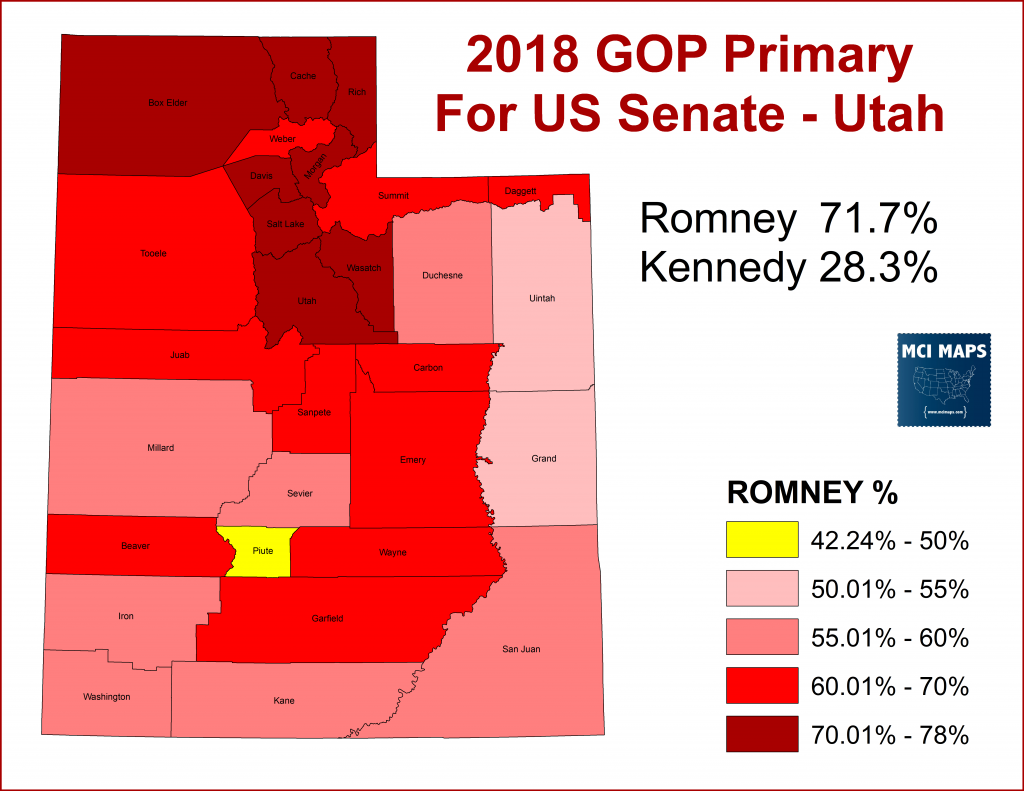
Romney would go on to easily win the election with 62% of the vote, far above Trump’s 45%. Despite having lower turnout, due to it being a midterm, Romney still got more raw votes than Donald Trump did two years earlier.
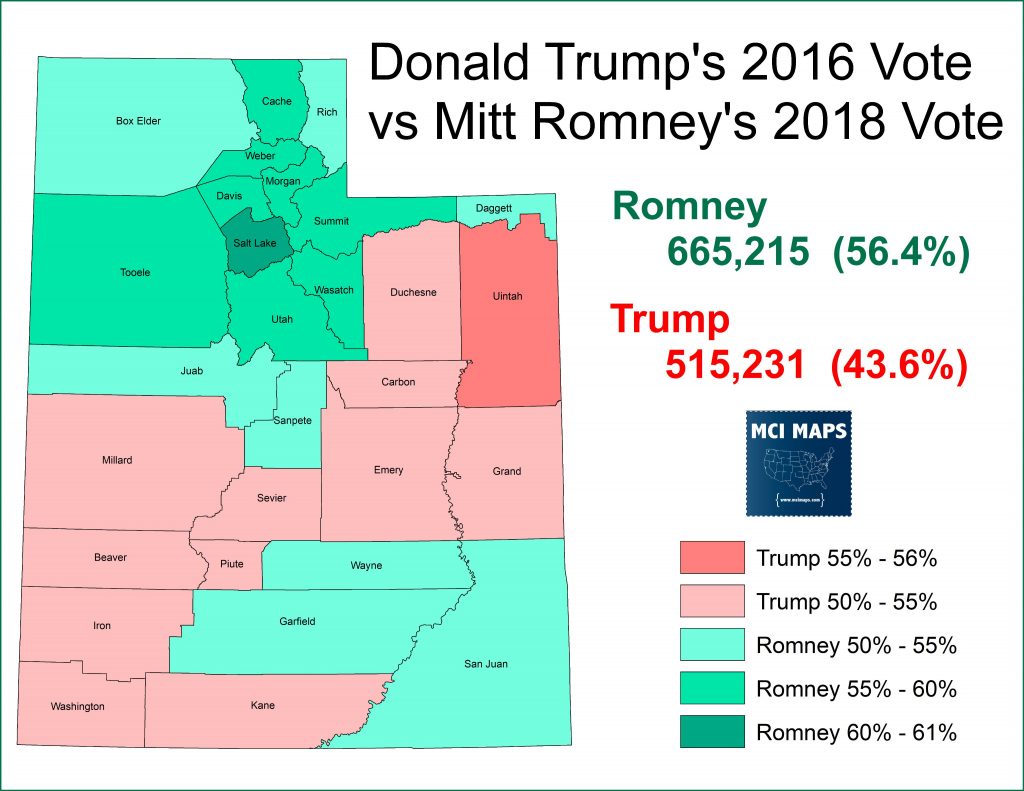
And no surprise, those bigger gains were in Salt Lake and the surrounding Mormon suburbs.
Looking Ahead
Trump’s petty and vindictive nature will no doubt mean the relationship between him and Romney, as weak as it was, is completely severed. But in terms of Romney’s re-election prospects, he’s not as doomed as some may think. Utah’s general unease with Trump and Romney not being up till 2024 all help the Senator.
Just a few months ago, a poll from Ohio Predictive Insights actually found that if Romney challenged Trump for the nomination, he’d easily win the Utah primary 55-37. Trump also boasts middling support in the upcoming election, beating all Democrats easy but still stuck in the high 40s to low 50s range – well below what a typical Republican does in the state.
Overall, Morning Consult polling has found Trump trading off net approval and net disapproval in Utah
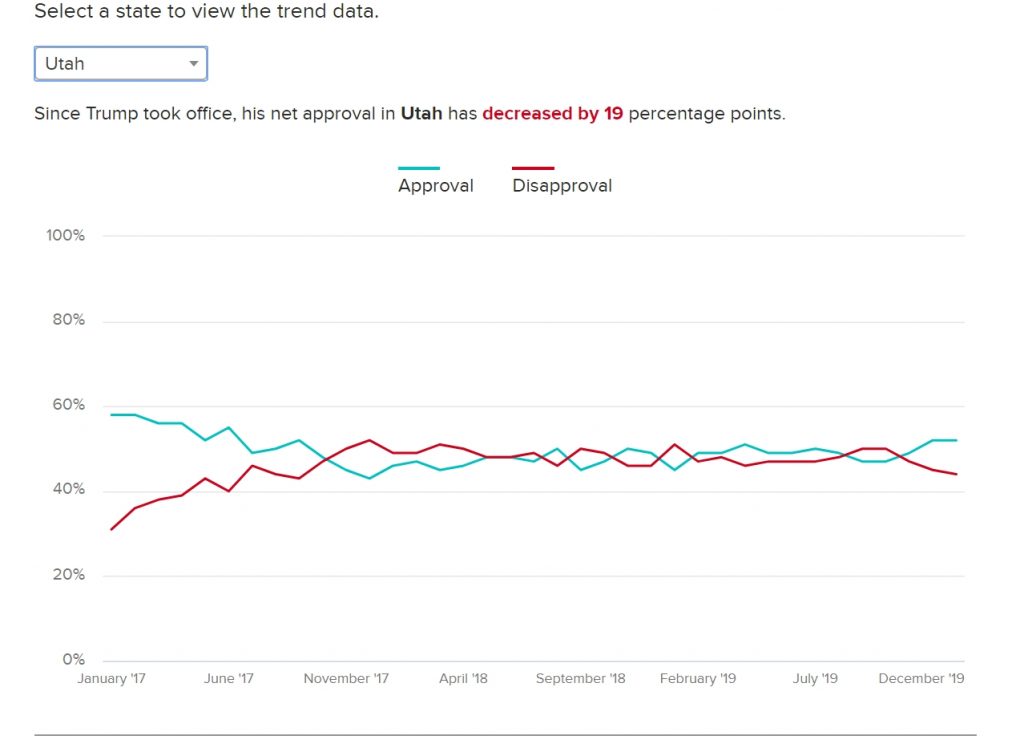
His current +8 in Utah is some of his best numbers in years, but who knows it it will last. Its also far below his +23 in Idaho and +27 in Wyoming.
Overall, if any Republican had a decent chance of defying Trump and winning a GOP nomination for their Senate seat, I’d say Romney is probably the most likely. Even as the Utah legislature considered a resolution to censure Romney, the lawmakers continue to say they respect Romney’s vote of conscious but want to maintain good relations with DC. It is the most respectful slap on the wrist process I’ve ever seen. It also should be noted Utah’s legislature is far more conservative than the state as a whole is, so don’t treat legislative action as a guide for voters of the state.
Of course, who knows what the Senator’s plans are. But one thing seems increasingly clear to me. In Utah, bowing before Trump is not a prerequisite.

